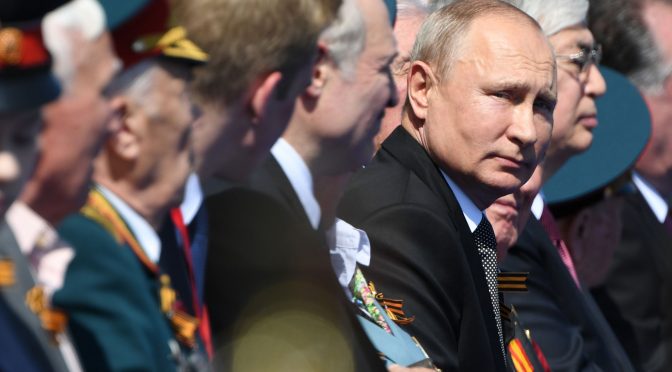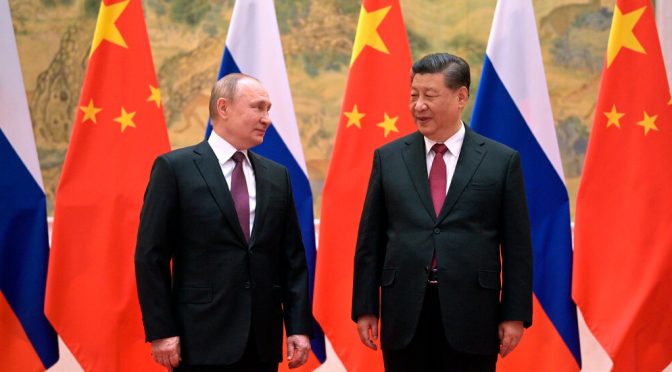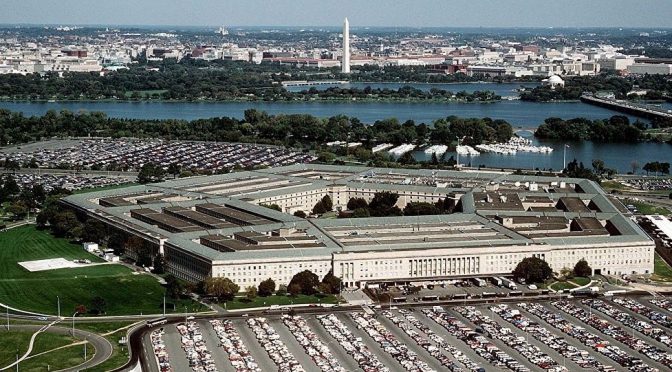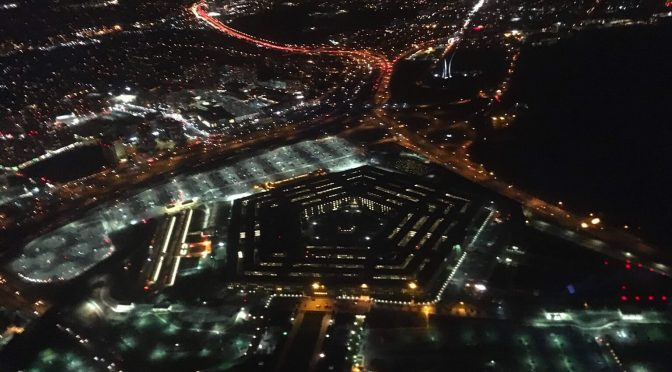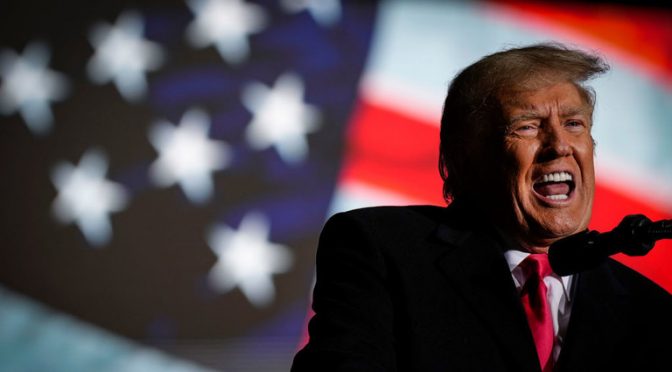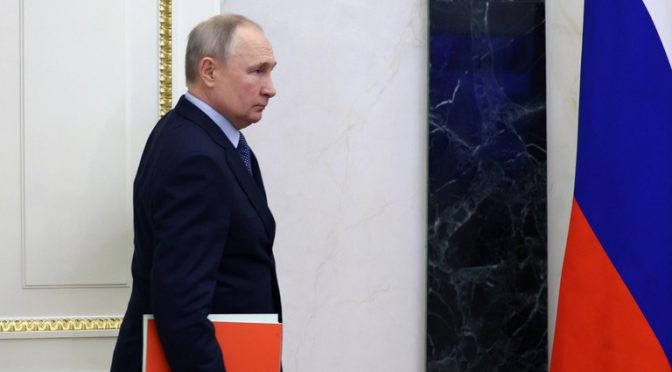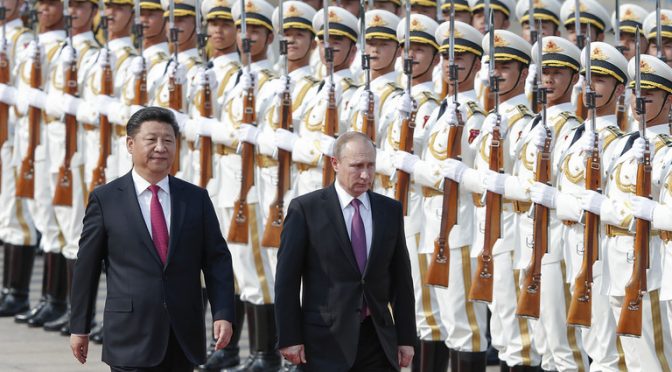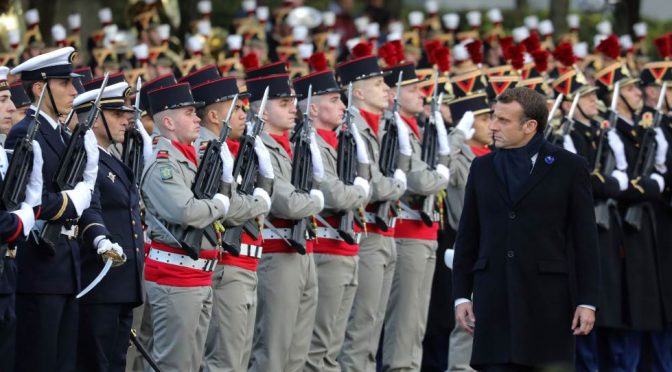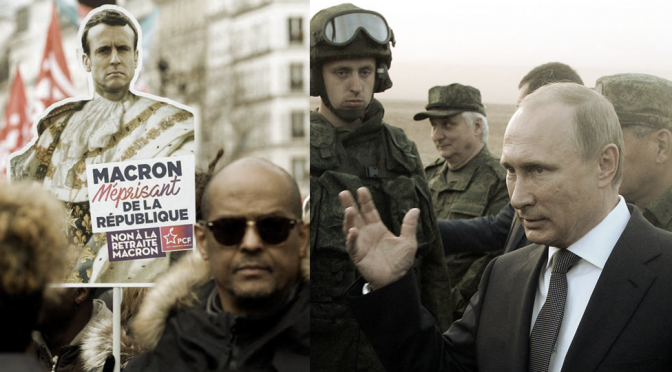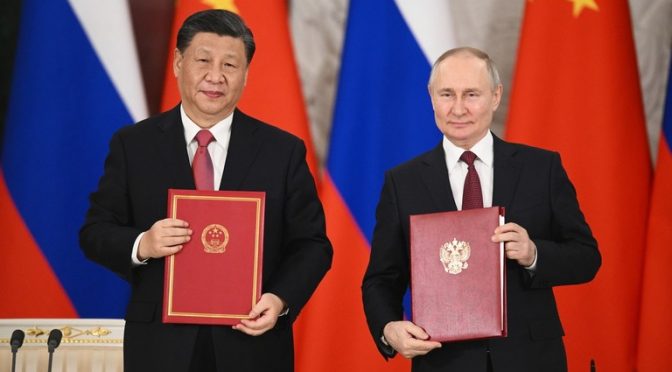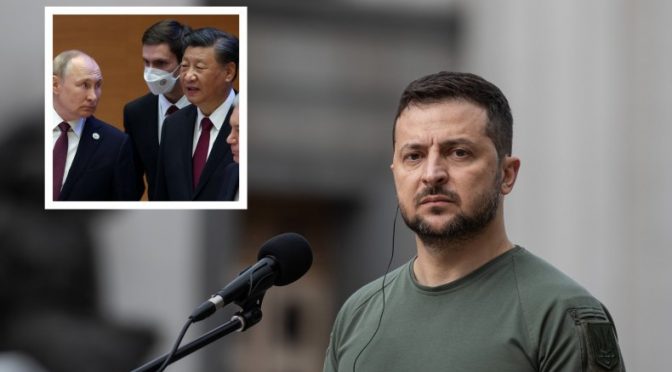The way mercenary leader Yevgeny Prigozhin and his private army have been waging a significant part of Vladimir Putin’s war in Ukraine has been well covered in the American media, not least of all because his firm, the Wagner Group, draws most of its men from Russia’s prison system. Wagner offers “freedom” from Putin’s labor camps only to send those released convicts to the front lines of the conflict, often on brutal suicide missions.
Continue reading The Army We Don’t See: Private Soldiers Who Fight in America’s NameAll posts by Geopolitics101
The UK’s Secret Control of Palestinian Security Forces
Leaks reveal that the increasingly violent and repressive Palestinian Authority security forces have been trained by British government-affiliated contractors with US money.
Continue reading The UK’s Secret Control of Palestinian Security ForcesThe Warmongering U.S. Empire is Crashing, the Lying Western Media’s Days Are Numbered
The Western mainstream media have never been so blatant in their propaganda for the U.S. empire.
Continue reading The Warmongering U.S. Empire is Crashing, the Lying Western Media’s Days Are NumberedBold Gambits on the West Asian Chessboard
In the Great Power competition, everything is connected: Uncertain negotiations between Russia and NATO over Ukraine may be impacted by Turkiye’s post-election pivot and Syria’s return to the Arab League.
Continue reading Bold Gambits on the West Asian ChessboardCries and Whispers Along the Russian Watchtowers
Remember Putin:
“We haven’t even started anything yet.”
“Whispers of an ‘evil power’ were heard in lines at dairy shops, in streetcars, stores, apartments, kitchens, suburban and long-distance trains, at stations large and small, in dachas, and on beaches. Needless to say, truly mature and cultured people did not tell these stories about an evil power’s visit to the capital. In fact they even made fun of them and tried to talk sense into those who told them.”
Mikhail Bulgakov, The Master and Margarita
To quote Dylan, who might have been a Bulgakov epigone: “So let us stop talking falsely now/the hour’s getting late.” By now it’s quite clear the delusion of a “peace” deal in Ukraine is the latest wet dream of the “non-agreement capable” usual suspects, always hooked on lies and plunder while deftly manipulating selected liberals among the Russian elite.
The goal would be to appease Moscow with a few concessions, while crucially keeping Odessa, Nikolaev and Dnipro, and safeguarding what would be NATO’s access to the Black Sea.
All that while investing in rabid, resentful Poland to become an armed to the teeth EU military militia.
So any “negotiations” towards “peace” in fact mask a drive to postpone – just for a little while – the original masterplan: dismembering and destroying Russia.
There are very serious discussions in Moscow, even at the highest levels, on how the elite is really positioned. Rougly three groups can be identified: the Victory party; the “Peace” party – which Victory would describe as surrenders; and the Neutral/Undecided.
Victory certainly includes crucial actors such as Dmitry Medvedev; Rosneft’s Igor Sechin; Foreign Minister Lavrov; Nikolai Patrushev; head of the Investigative Committee of Russia, Aleksandr Bastrykin; and – even under fire – certainly Defense Minister Shoigu.
“Peace” would include, among others, the head of Telegram, Pavel Durov; billionaire entrepreneur Andrey Melnichenko; metal/mining czar Alisher Usmanov (born in Uzbekistan); and Kremlin spokesman Dmitry Peskov.
Neutral/Undecided would include Prime Minister Mikhail Mishustin; mayor of Moscow, Sergei Sobyanin; Chief of Staff of the Presidential Executive Office, Anton Vaino; First Deputy Chief of Staff of the Presidential administration and media czar, Alexey Gromov; Sberbank’s CEO Herman Gref; Gazprom CEO Alexey Miller; and – special bone of contention – perhaps FSB supremo Alexander Bortnikov.
It’s fair to argue the third group represents the elite majority. This means they heavily influence the entire course of the Special Military Operation (SMO), which by now has metastasized into an Anti-Terror Operation (ATO).
The “counter-offensive” fog of war
These different Russian views at the very top predictably elicit frantic speculation among US and NATO Think Tankland. Hostages of their own excitement, they even forget what anyone with an IQ over room temperature is aware of: Kiev – stuffed with $30 billion in NATO weaponry – may come up with less than zero effects out of its much lauded “counter-offensive”. Russian forces are more than prepared, and Ukraine lacks the surprise element.
Collective West hacks, after feverish head scratching, finally discovered that Kiev needs to go for a “combined arms operation” to get something out of its new deluge of NATO toys.
John Cleese has noted how the coronation of Charles The Tampax King looked like a Monty Python sketch. Now try this one as a sequel: the Hegemon cannot even pay its trillions in debt while Kiev P.R. goons complain that the $30 billion they got is peanuts.
On the Russian front, the indispensable Andrei Martyanov – a maelstrom of wit – has observed how most alarmed Russian military correspondents simply have no idea “what type and volume of combat information is pouring to the command posts in Moscow, Rostov-on-Don or staffs of frontline formations.”
He stresses that “no serious operational level officer” will even talk to these guys, joyfully described as “voenkurva” (roughly, “military bitches”), and simply will not “divulge any kind of operational data which is highly classified.”
So, as it stands, all the sound and fury about the “counter-offensive” is shrouded by a thick fog of war.
And that only serves to add more fuel to the fire of US Think Tankland wishful thinking. The new dominant narrative in the Beltway is that the leadership in Moscow is “fragmented and unpredictable”. And that may be leading to “a conventional defeat of a major nuclear power” whose “command-and-control system broke down.”
Yes: they actually believe in their own silly (copyright John Cleese) propaganda. They are the American equivalent of the Ministry of Silly Walks. Incapable of analyzing why and how the Russian elite holds different views on the method and the extent of the SMO/ATO, the best they can come up with is “protecting Ukraine is a strategic necessity, since the Russian threat increases if Moscow wins in Ukraine.”
What’s behind Prighozin’s sound and fury
Trademark American arrogance/ignorance does not erase the fact there seems to be a serious power struggle among the siloviki. Yevgeny Prigozhin, a siloviki, in fact denounced Shoigu and Gerasimov as incompetent, implying they only keep their posts out of loyalty to President Putin.
This is as serious as it gets. Because it’s linked to a key question posed across several educated silos in Moscow: if Russia is widely known to be the strongest military power in the world with the most advanced defensive and offensive missiles, how come they have not wrapped up the whole deal in the Ukrainian battlefield?
A plausible answer is that only 200,000 members of the Russian army are currently fighting, and about 400,000 to 600,000 are waiting in reserve for the Ukraine attack. While they wait they are in constant training; so waiting works to Russia’s advantage.
Once the famous “counter-offensive” peters out, Ukraine will be hit with massive force. There will be no negotiated settlement. Only unconditional surrender.
What goin’ on right now – the Prigozhin drama – is subordinated to this logic, running in parallel to a quite sophisticated media operation.
Yes, the Ministry of Defense (MoD) made several serious mistakes, as well as other Russian institutions, since the start of the SMO. To criticize them in public, constructively, is a salutary exercise.
Prighozin’s tactics are a gem; he manipulates a degree of public outrage/indignation to put pressure on the MoD bureaucracy by essentially telling the truth. He could even go as far as naming names: officers who are abandoning different sectors of the frontlines. In contrast, his Wagner “musicians” are pictured as true heroes.
Whether Prigozhin’s sound and fury will be enough to fine tune the MoD’s entrenched bureaucracy is an open question. Still, media coverage of the whole drama is essential; now that these problems are in the public domain, people will expect the MoD to act.
And by the way, this is the essential fact: Prighozin has been allowed (italics mine) to go as far as he wants by the Higher Power (the St. Petersburg connection). Otherwise he would be in a revamped-gulag by now.
So the next few weeks are absolutely crucial. Putin and the Security Council certainly know what everyone else doesn’t – including Prighozin. The key take away is that the ground will start to be laid for US/NATO to eventually turn rump Ukraine, the Baltic lap dogs, rabid Poland and a few other extras into a sort of Fortress Eastern Europe engaged in a war of attrition against Russia with the potential to last decades.
That may be the ultimate argument for Russia to finally go for the jugular, as soon as possible. Otherwise the future will be bleak. Well, not so bleak. Remember Putin: “We haven’t even started anything yet.”
The Flight From the US Dollar
On March 20, Chinese President Xi Jinping met with Russian President Vladimir Putin in Moscow. In his article in the Russian media preceding the meeting, Xi enthused that “China-Russia trade exceeded 190 billion U.S. dollars last year, up by 116 percent from ten years ago.”
Continue reading The Flight From the US DollarAs US-China Rivalry Boils, Manila Should Play its Cards Well
One must ask how prepared Manila is to weather potential economic reprisals, especially from Beijing.
Continue reading As US-China Rivalry Boils, Manila Should Play its Cards WellSyria and Saudi Arabia Reopen Embassies
The move comes just days after Damascus was reinstated to the Arab League, following a decade-long suspension.
Syria and Saudi Arabia have agreed to resume diplomatic relations nearly 10 years after cutting ties, both countries have announced.
The move marks yet another rapprochement between Riyadh and its former foes, after the Gulf kingdom also restored diplomacy with Iran under a deal brokered by China.
The Syrian Foreign Ministry confirmed the decision in a statement on Tuesday, saying the renewed diplomacy would strengthen “bilateral relations between Arab countries to serve joint Arab action.”
“Based on the deep bonds and common affiliation of the peoples of the Syrian Arab Republic and the Kingdom of Saudi Arabia, and the embodiment of the aspirations of the peoples of the two countries …The Syrian Arab Republic decided to resume the work of its diplomatic mission in the Kingdom of Saudi Arabia,” the ministry said.
The Saudi Foreign Ministry issued a similar notice on Tuesday, stressing “the brotherhood ties that unite the peoples of the Kingdom of Saudi Arabia and the Syrian Arab Republic.” While neither country specified when they would reopen their respective embassies, the kingdom added that the move would “enhance security and stability in the region.”
Riyadh initially broke relations with Damascus in 2012, not long after the Syrian war kicked off, during which Saudi Arabia supplied millions of dollars in weapons and gear to jihadist rebel factions seeking to oust Syrian President Bashar al-Assad. Saudi officials were among the first to condemn Assad’s handling of anti-government protests at the time, later shuttering the Saudi embassy in Syria and expelling the Syrian ambassador.
However, following a normalization deal between Saudi Arabia and Iran mediated by China in March, the region has seen renewed efforts to mend ties between former adversaries, with the United Arab Emirates also voicing willingness to improve relations with Syria. Tehran and Riyadh have also taken steps to end the conflict in Yemen, which has raged since 2015, taking a devastating toll on Yemeni civilians.
On Sunday, the 22-member Arab League agreed to lift Syria’s 12-year suspension from the organization, yet another step toward reconciliation. That decision followed a high-level meeting in Amman between Syria, Saudi Arabia, Jordan, Egypt and Iraq, where all parties agreed to improve cooperation on combating terrorism and pledged to “support Syria and its institutions to establish control over all of its territory and impose the rule of law.”
The Federal Reserve Cartel: The Solution
Thomas Jefferson opined of the Rothschild-led Eight Families central banking cartel which came to control the United States, “Single acts of tyranny may be ascribed to the accidental opinion of the day, but a series of oppressions begun at a distinguished period, unalterable through every change of ministers, too plainly prove a deliberate, systematic plan of reducing us to slavery”.
Continue reading The Federal Reserve Cartel: The SolutionThe Signs of De-Dollarization are Everywhere
De-dollarization is increasingly making headlines and you don’t have to look too hard to find examples.
Continue reading The Signs of De-Dollarization are EverywhereOver 2,000 US Banks are Insolvent
The US banking sector has recently been hit by a major crisis.
Continue reading Over 2,000 US Banks are InsolventSudan: The New Geopolitical Battlefield Between East and West?
The potential outbreak of a civil war sparked by a factional fight within Sudan’s military government poses a destabilization threat beyond the nation’s borders – into Africa, West Asia, and the emerging multipolar order. This suits the west just fine.
Continue reading Sudan: The New Geopolitical Battlefield Between East and West?Trading in US banks halted as financial panic spreads
More regional lenders have seen their shares plummet, prompting regulators to intervene.
Continue reading Trading in US banks halted as financial panic spreadsDe-Dollarization Kicks into High Gear
The US dollar is essential to US global power projection. But in 2022, the dollar share of reserve currencies slid 10 times faster than the average in the past two decades.
Continue reading De-Dollarization Kicks into High GearHow to Shame the Warmongers in Mainstream Media Into Embarrassing Silence
In a breathtaking moment of unbridled honesty and defiance, activist Jose Vega confronted the mainstream media powerhouses for their warmongering narratives and blatant disregard for the truth.
Continue reading How to Shame the Warmongers in Mainstream Media Into Embarrassing SilenceCongressional China Panel Preps Proposals to Rapidly Arm Taiwan
The House committee dedicated to countering China is preparing bipartisan proposals for the fiscal 2024 defense authorization bill that would accelerate U.S. munitions production and arms transfers to Taiwan, its chairman told Defense News in an exclusive interview.
Continue reading Congressional China Panel Preps Proposals to Rapidly Arm TaiwanMr. Lavrov’s New York Shuffle
Foreign Minister Sergey Lavrov’s New York moment performed the diplomatic equivalent of bringing the house down.
Continue reading Mr. Lavrov’s New York ShuffleMilitary Cadets, Mandated to be Fully COVID19 Vaccinated, are Dying Suddenly Recently
Atlanta, GA – US Marine Corps recruit Noah Evans, age 21, died suddenly during training on April 19, 2023 – 4th young Marine death in 2 years (click here)

The Empire’s Revenge: Set Fire To Southern Eurasia
The collective cognitive dissonance displayed by the pack of hyenas with polished faces driving U.S. foreign policy should never be underestimated.
Continue reading The Empire’s Revenge: Set Fire To Southern EurasiaASEAN Finance Ministers & Central Banks Consider Dropping US Dollar, Euro, Yen, Phasing Out Visa and Mastercard
An official meeting of all ASEAN Finance Ministers and Central Bank Governors kicked off on Tuesday (March 28) in Indonesia. Top of the agenda are discussions to reduce dependence on the US Dollar, Euro, Yen, and British Pound from financial transactions and move to settlements in local currencies.
Continue reading ASEAN Finance Ministers & Central Banks Consider Dropping US Dollar, Euro, Yen, Phasing Out Visa and MastercardICC’s Putin Arrest Warrant Based on State Dept-funded Report that Debunked Itself
On March 17, the Prosecutor General of the International Criminal Court, Karim Khan, introduced an arrest warrant for Russian President Vladimir Putin and his Commissioner for Children’s Rights, Maria Llova-Belova.
Continue reading ICC’s Putin Arrest Warrant Based on State Dept-funded Report that Debunked ItselfTRADING WITH THE ENEMY
Amid rampant corruption in Kiev and as US troops gather at the Ukrainian border, does the Biden administration have an endgame to the conflict?
Continue reading TRADING WITH THE ENEMYThe Taliban Did in One Year What Washington Couldn’t in 20
The ban on Afghan poppy cultivation is set to hit Europe’s heroin supplies.
Continue reading The Taliban Did in One Year What Washington Couldn’t in 20Multipolarity is About a Fair Redistribution of Power, Which the West Refuses to Accept
An equitable world order is gaining momentum as tensions flare between the dominant and emerging world powers
Continue reading Multipolarity is About a Fair Redistribution of Power, Which the West Refuses to AcceptHedge Funds Making Billions from Ukraine Turmoil
Experts blame the organizations for exacerbating the food crisis by “betting on hunger”.
Continue reading Hedge Funds Making Billions from Ukraine TurmoilPentagon Leaked Papers are Probably Fake, So Who’s Behind Them?
We should be cautious about authenticating these documents because no one has either confirmed their authenticity or dismissed them entirely as fake.
Continue reading Pentagon Leaked Papers are Probably Fake, So Who’s Behind Them?India’s New Foreign Trade Policy Aims to Smash Dollar’s Hegemony
The Chinese yuan may be the perfect foil for the rupee to usher in a new multipolar order for global trade.
Continue reading India’s New Foreign Trade Policy Aims to Smash Dollar’s HegemonyHigh Stakes as Uncle Sam’s Days of Impunity Are Finally Over
The edifice of American imperial power has never been challenged at its foundation. It is now.
Continue reading High Stakes as Uncle Sam’s Days of Impunity Are Finally OverFinland Joins NATO in Foreboding But Fitting Historical Coming Out
Biden and other NATO cheerleaders celebrating “peace” and “security” with Finland joining the bloc this week is not just grotesque. It is a foreboding warning of a more disastrous war.
Continue reading Finland Joins NATO in Foreboding But Fitting Historical Coming OutThe Pentagon Leaks Charade
The script reads like a spoof straight out of legendary Mad magazine 1960’s cartoon “Spy vs. Spy”: Secret Pentagon Documents Fall in the Hands of Malign Russia. Well, actually in the hands of millions accessing Twitter and Telegram.
Continue reading The Pentagon Leaks CharadeBridge of Peace and Prosperity Proposed From the Arab World to Syria
Syria is on the brink of recovery as Saudi Arabia plans to invite Syrian President Bashar al-Assad to the Arab League summit in Riyadh on May 19.
Continue reading Bridge of Peace and Prosperity Proposed From the Arab World to SyriaSaudis Arrive for Yemen Peace Talks
An almost nine-year conflict has led to one of the world’s worst humanitarian crises.
Delegates representing Saudi Arabia and Oman arrived in the Yemeni capital, Sanaa, on Saturday to discuss a permanent ceasefire to end the civil war which has raged in the country since 2014.
The fighting is being waged primarily between the Saudi-backed Yemeni government and the Houthi rebels – both of whom claim to be the country’s official leaders – along with their various allies.
The Houthi-operated Saba news agency reported on Sunday that the Saudi and Omani envoys will attempt to negotiate with Houthi officials to end the fighting, bring to a close Riyadh’s military involvement, and lift “the siege with all its repercussions.”
Saba also said the talks are aimed at restoring the rights of Yemeni citizens, including the payment of state salaries with revenue derived from oil and gas. The lifting of a Saudi-imposed blockade on Yemeni ports will also be discussed, as well as the establishment of a timeline for foreign military forces to leave the country, Reuters reported.
Omani officials are mediating the talks, which come alongside UN efforts to establish peace in the region. The discussions follow Saudi Arabia and Iran’s decision to re-establish diplomatic ties, at talks recently brokered by China.
The Houthis are an Iran-aligned Shia militant group which seized Sanaa in 2014, as well as much of the north of the country. The previous, internationally recognized government fled south, and later into exile in Saudi Arabia. In 2015, Riyadh led a coalition of nine countries from West Asia and North Africa to intervene in the civil war on behalf of the ousted government, launching bombing campaigns and later a naval blockade.
Saudi Arabia has accused Iran of supplying weapons to the Houthis. Tehran denies this, but admits backing the rebel cause.
The conflict has been described as a ‘proxy war’ between Iran and Saudi Arabia. The UN has estimated that by the end of 2021 more than 377,000 people had died during the conflict, either by direct or indirect means. Around 80% of Yemen’s population is thought to be dependent on foreign aid. The civil war has led to what has been described as one of the world’s worst humanitarian disasters.
Earlier this month, Saudi Arabia agreed to release 13 Houthi prisoners in exchange for one Saudi captive. Further prisoner swaps are expected.
“The detainees released today from Saudi prisons are part of the deal agreed via the United Nations, and next Thursday the deal will be fully implemented,” Houthi official Abdul-Qader el-Murtaza told Reuters on Saturday.
Saudi Arabia to End Yemen War
Hopes abound for a deal on a “permanent ceasefire” with Houthi leaders by the end of April.
Continue reading Saudi Arabia to End Yemen WarTürkiye-Syria Relations: Toward A ‘New Europe’ in the Middle East
Ankara and Damascus, with Moscow’s backing, are making an effort to reconcile. This could lead to a thriving, integrated region.
Continue reading Türkiye-Syria Relations: Toward A ‘New Europe’ in the Middle EastWhy the US Fears Arab Normalisation with Syria
Prime Minister Benjamin Netanyahu criticised US President Joe Biden for meddling in Israeli affairs by warning against the current extreme right-wing government’s plan to subjugate Israel’s supreme court to control by the Knesset.
Continue reading Why the US Fears Arab Normalisation with SyriaReclaiming the US
At what point does a beleaguered population living near or below the poverty line rise up in protest?
Continue reading Reclaiming the USSaudi Arabia Makes its Eurasian Shift
Saudi Arabia’s recent reconciliations with Iran and Syria under Chinese-Russian guidance is perceived as a step toward reducing Riyadh’s dependence on the US, while also advancing Beijing and Moscow’s political and economic influence in West Asia.
Continue reading Saudi Arabia Makes its Eurasian ShiftEDCA Camps are US ‘Platforms for War,’ Chinese Missiles’ Targets | Duterte
RODRIGO Duterte hasn’t lost his penchant for telling it like it is, even beating this professional writer in crafting a precise, vivid term for our military camps that the former president Benigno Aquino 3rd and incumbent President Ferdinand Marcos Jr. are allowing the US armed forces to use whenever they please, especially in a war with China.
Continue reading EDCA Camps are US ‘Platforms for War,’ Chinese Missiles’ Targets | DuterteSimply Living in The US is Likely to Reduce Your Life Expectancy
The average American lifespan keeps getting shorter, even as comparably rich countries rebound and recover after Covid-19.
Continue reading Simply Living in The US is Likely to Reduce Your Life ExpectancyThe Capital of the Multipolar World: A Moscow Diary
In Moscow you feel no crisis. No effects of sanctions. No unemployment. No homeless people in the streets. Minimal inflation.
Continue reading The Capital of the Multipolar World: A Moscow DiaryUS Occupiers Lash Out as Syria War Draws to an End
Washington is worried about a peace between Damascus and its estranged Arab neighbors — as well as Turkey — that is marginalizing the U.S. and its allies.
Continue reading US Occupiers Lash Out as Syria War Draws to an EndAmerica, the Reality TV Show, Reaches New Depths with Trump’s Indictment
US politics have gotten even raunchier with the country’s first prosecution of a former president.
Continue reading America, the Reality TV Show, Reaches New Depths with Trump’s IndictmentMoscow Calls for Strengthened Cooperation Between All Nations Facing Foreign Pressure
Moscow aims to defend the emerging multipolar world order against the vestiges of Western domination.
Continue reading Moscow Calls for Strengthened Cooperation Between All Nations Facing Foreign PressureWhat You Need to Know About Russia-China Relations, But Were Afraid to Ask
So much has been said about Xi Jinping’s visit to Russia last week, that the descriptive genre has been exhausted. What is needed instead is either details on specific aspects or some sort of in-depth socio-cultural analysis.
Continue reading What You Need to Know About Russia-China Relations, But Were Afraid to AskBrazil and China Sign Pact to Abandon Dollar
The two BRICS nations will now reportedly trade in their own currencies.
Continue reading Brazil and China Sign Pact to Abandon DollarGlobal South Solidarity is the Key to Lifting Up Central America – Not Washington’s Monroe Doctrine
The US is angry at Latin American nations getting close to China, but the only alternative on offer is imperialist exploitation.
Continue reading Global South Solidarity is the Key to Lifting Up Central America – Not Washington’s Monroe DoctrineFrance Blocked for 4 Years: Macron Has Just Deliberately Destroyed His Constitutional Authority
The crisis that France is going through today is not just another episode in an eternally agitated country. It is about a deep crisis of mode which will be solved only with the beginning of a new society. The country will go through several years of blockage, before embarking on a complete transformation, a revolution that will last at least a generation.
Continue reading France Blocked for 4 Years: Macron Has Just Deliberately Destroyed His Constitutional AuthorityArresting Putin, Or Arresting All-Out Western Public Revolt?
If there were any genuine principles of justice, Biden should be in the dock facing war crime charges in connection with America’s illegal wars.
Continue reading Arresting Putin, Or Arresting All-Out Western Public Revolt?UK to Send Nuclear Weapon to Zelenskyy Regime
The psychopathy of “conservatives” in the UK, and their criminally insane neocon counterparts in America, represents a serious and growing threat to humanity.
Continue reading UK to Send Nuclear Weapon to Zelenskyy RegimeIn Moscow, Xi and Putin Bury Pax Americana
In Moscow this week, the Chinese and Russian leaders revealed their joint commitment to redesign the global order, an undertaking that has ‘not been seen in 100 years.’
Continue reading In Moscow, Xi and Putin Bury Pax AmericanaOver A Million Demonstrators Took to the Streets Across France
Police clashed with over a million demonstrators opposed to President Macron’s pension reform. Unlike the US State Department instigated unrests, the ongoing French Revolution is not on TV.
Continue reading Over A Million Demonstrators Took to the Streets Across FranceFor Second Time, US Seeks to Sabotage a Russo-Ukraine Negotiated Peace
As Ukraine sinks into collapse from Russia’s invasion the US provoked, the death and destruction has made no dent on Uncle Sam’s inhumane conscience.
Continue reading For Second Time, US Seeks to Sabotage a Russo-Ukraine Negotiated Peace




